
Concordia Seminary Newsroom
Words of Wisdom
From Seminary Recruiters
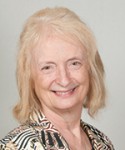

Dr.
Gillian Bond
Director, Residential
Deaconess Program
Do you care about people and enjoy getting to know them?
Deaconesses work with people in many different contexts, walking with them through both good times and trying times. We follow our Lord in meeting people where they are, and we share His love with them holistically. This includes sharing the faith, sharing Christ’s peace with people in the toughest of times, and addressing a broad variety of spiritual and worldly needs. It also allows us to share in times of laughter and celebration, and to have the joy of seeing Christ work in people’s lives. Good relationships with people, based on trust in the deaconess, are key in all of this.
Come and visit the Seminary and learn more about the variety of opportunities that exist to work with people as a deaconess. There are many common and consistent themes, but every experience a deaconess has will be a little different and generally varies from day to day.
Are you a good team player who can also think on her feet and take the initiative?
Most deaconesses work as part of a team, but there also are aspects of leadership involved, for example in leading laity in outreach or social ministry programs, plus of course, in meeting people where they are at in life. You need to be able to respond to situations as they develop.
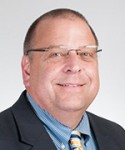
Rev.
Bill Wrede
Director, Ministerial
Recruitment and Admissions
How has your interest in full-time church work been validated?
As ministry is not done in isolation, neither should contemplating ministry be done in isolation. While there is mostcertainly every good reason to spend time meditating and praying, it’s important to listen to what others say about yourinterest in ministry. Have others encouraged you to consider full-time ministry? Have you been asked to use your gifts in ways that both challenge you and affirm your work? Listen!
Are there any barriers that prevent you from seriously considering ministry?
Are they real or are the barriers a series of “what ifs” that you’ve created but perhaps never investigated? A telephone conversation, email or face-to-face visit can quickly reveal options or simply give facts that can inform a decision. Our entire campus is a resource for people as they consider the financial cost and financial aid, the impact on families, being second career, hearing about the variety of ministries in the Church and exploring what the Seminary has to offer.
Come and meet the people!
Nothing can replace visiting our campus in person. What does a visit look like? Sit with a current student and hear about his journey to the Seminary. Eat lunch in Wartburg Hall and listen in on what students discuss. Sit in the chapel and hear the community in song, prayer and the sharing of the peace. Our campus is living and active.
“And how are they to preach unless they are sent? As it is written, ‘How beautiful are the feet of those who preach the good news!’” (Rom. 10:15 ESV).
10 Reasons…
to attend Concordia Seminary, St. Louis
- Campus-wide commitment to leading with the Gospel
- Ministerial formation informed by Scripture and the Lutheran Confessions
- Affordable tuition augmented by generous financial aid
- World-class faculty dedicated to ministerial formation and academic excellence
- Vibrant student community
- Hands-on learning connected to the realities of 21st century ministry settings
- Beautiful, 72-acre campus adjacent to a bustling, urban community
- Top-ranked Lutheran theological library
- 100 percent placement of all candidates
- Continuing education opportunities that foster lifelong maturation of faith, discipleship and skill
Did You Know?
Last year, more than 30 congregational calls in the LCMS went unfilled.
What can you do?
- Pray that God will bless Concordia Seminary, its students, faculty and staff, and raise up future pastors and leaders.
- Encourage potential students to explore enrollment and share names of potential students with our admissions office
- Participate with a gift (www.csl.edu/give).
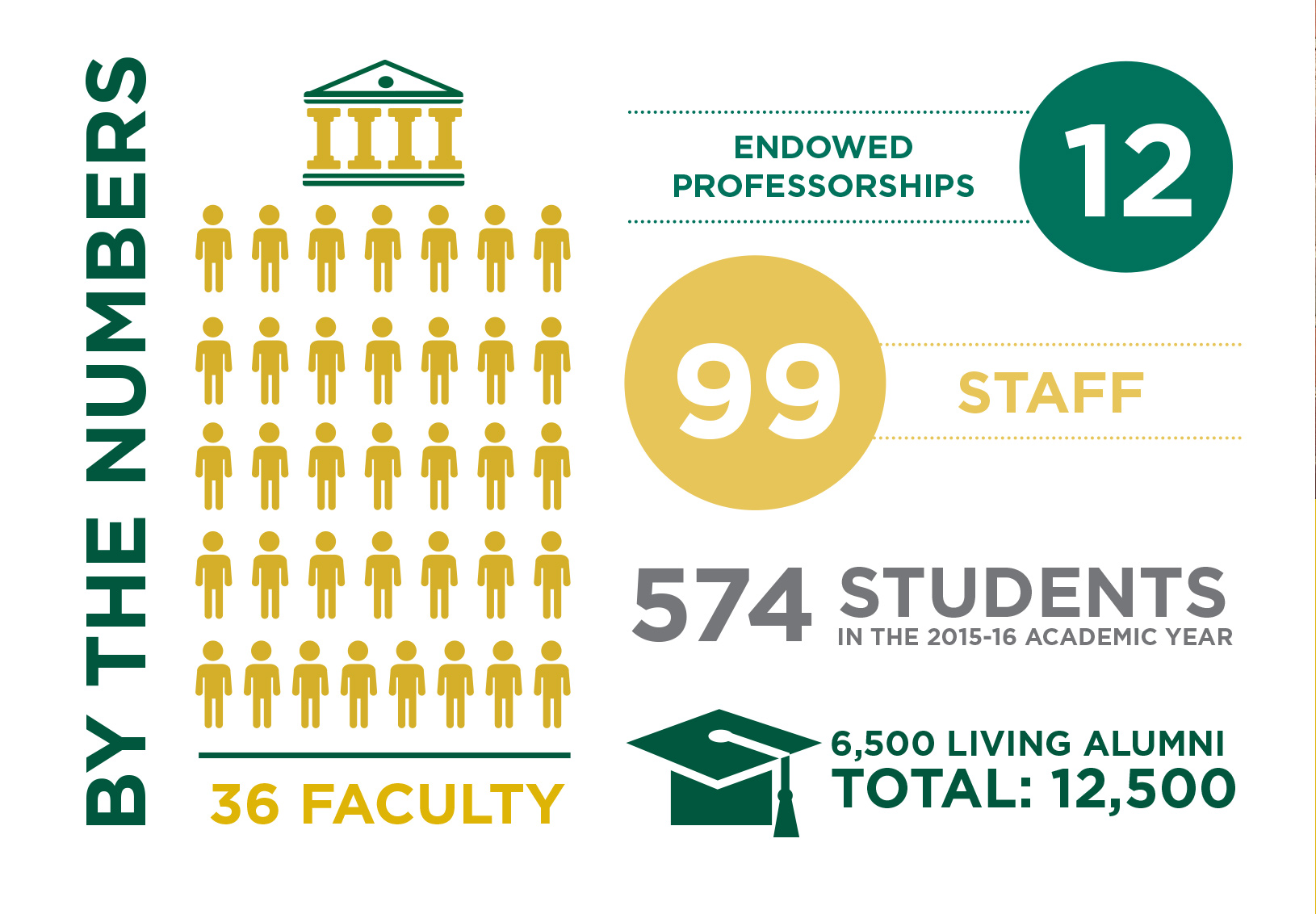
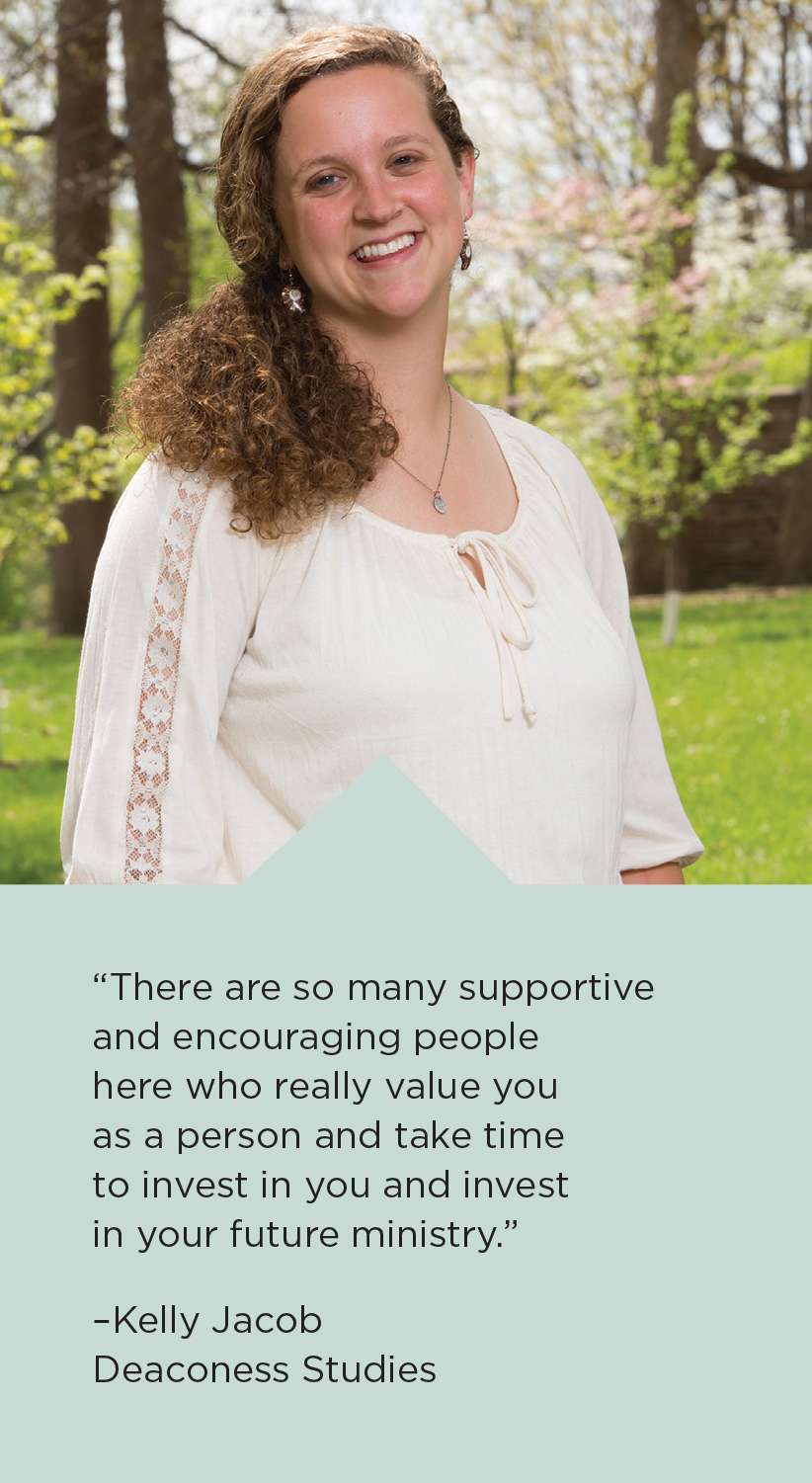
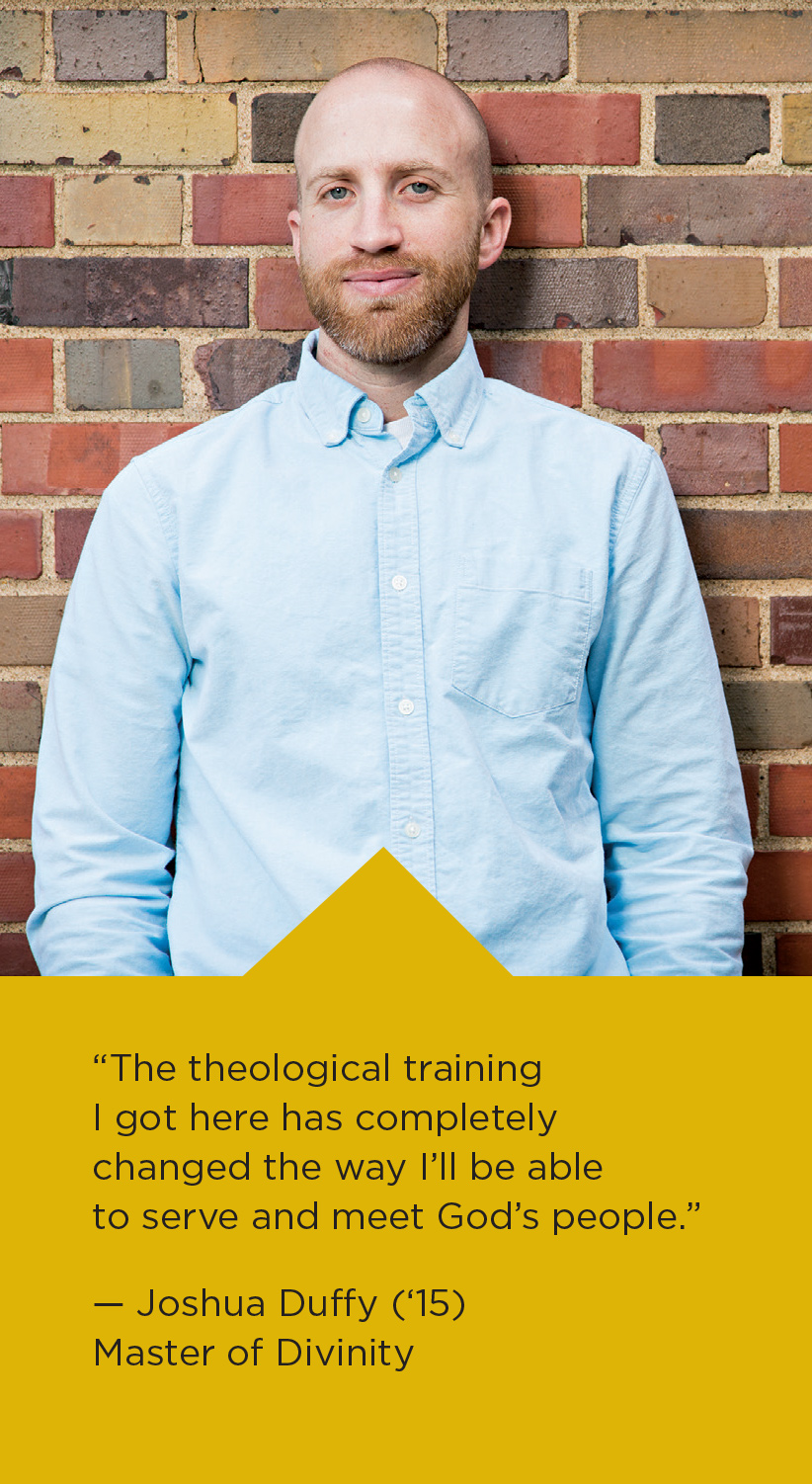
Academic Programs
Pastoral Formation
- Master of Divinity (M.Div.)
- Residential Alternate Route (RAR)
Diaconal Formation (Deaconess)
- Master of Arts with Major in Spiritual Care with Certification
- Dual Degree: Master of Social Work and Master of Arts with Major in Spiritual Care with Certification
Advanced Studies
- Master of Arts (M.A.)
- Master of Sacred Theology (S.T.M.)
- Doctor of Ministry (D.Min.)
- Doctor of Philosophy (Ph.D.)
Distance Ministerial Formation Programs
- Specific Ministry Pastor (SMP)
- SMP to General Pastor Certification (SMP-GPC)
- Center for Hispanic Studies (CHS)
- Ethnic Immigrant Institute of Theology (EIIT)
- Deaf Institute of Theology (DIT)
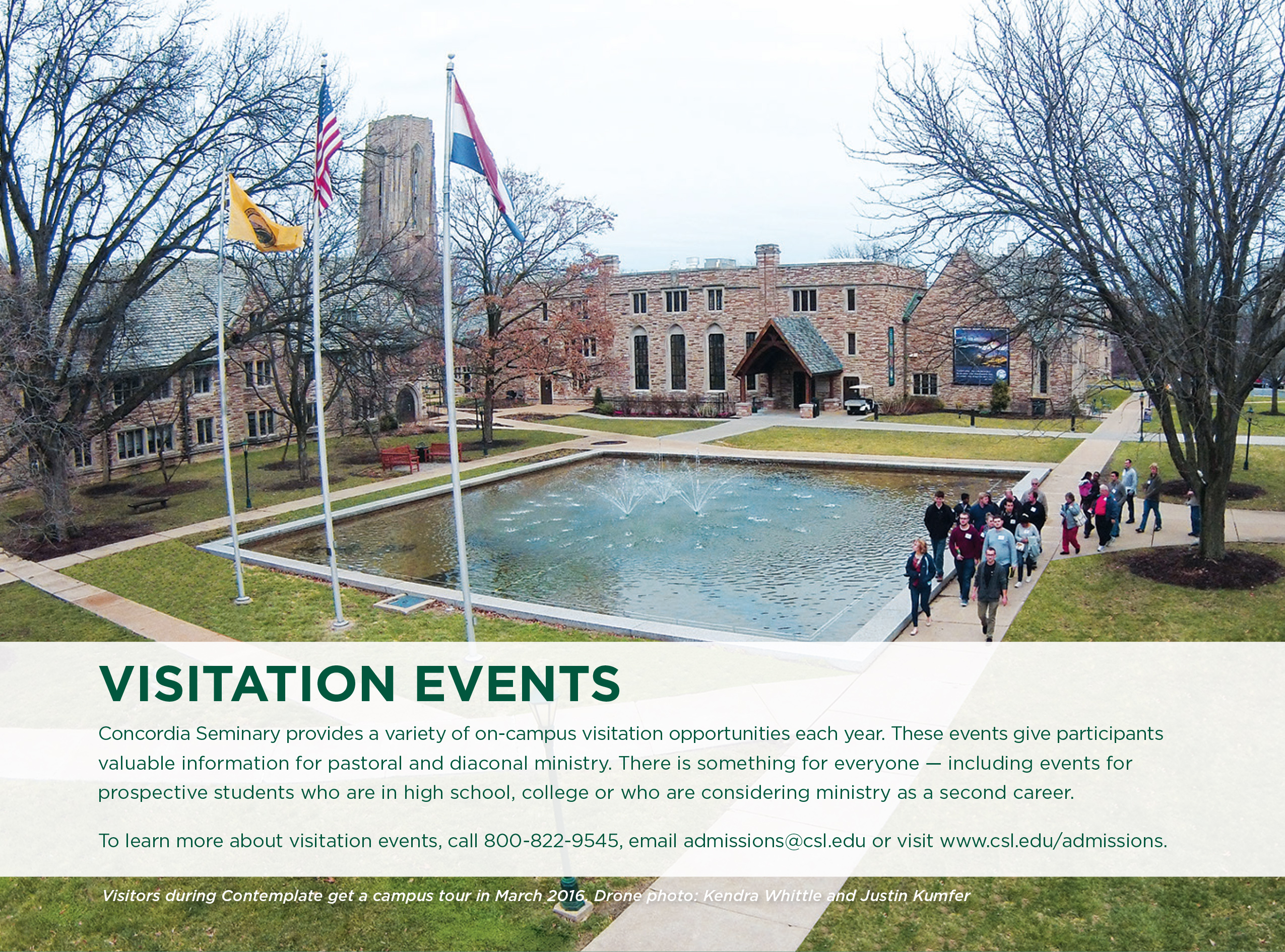
Did You Know?
The average Seminary student pays only $3,200 in tuition annually?
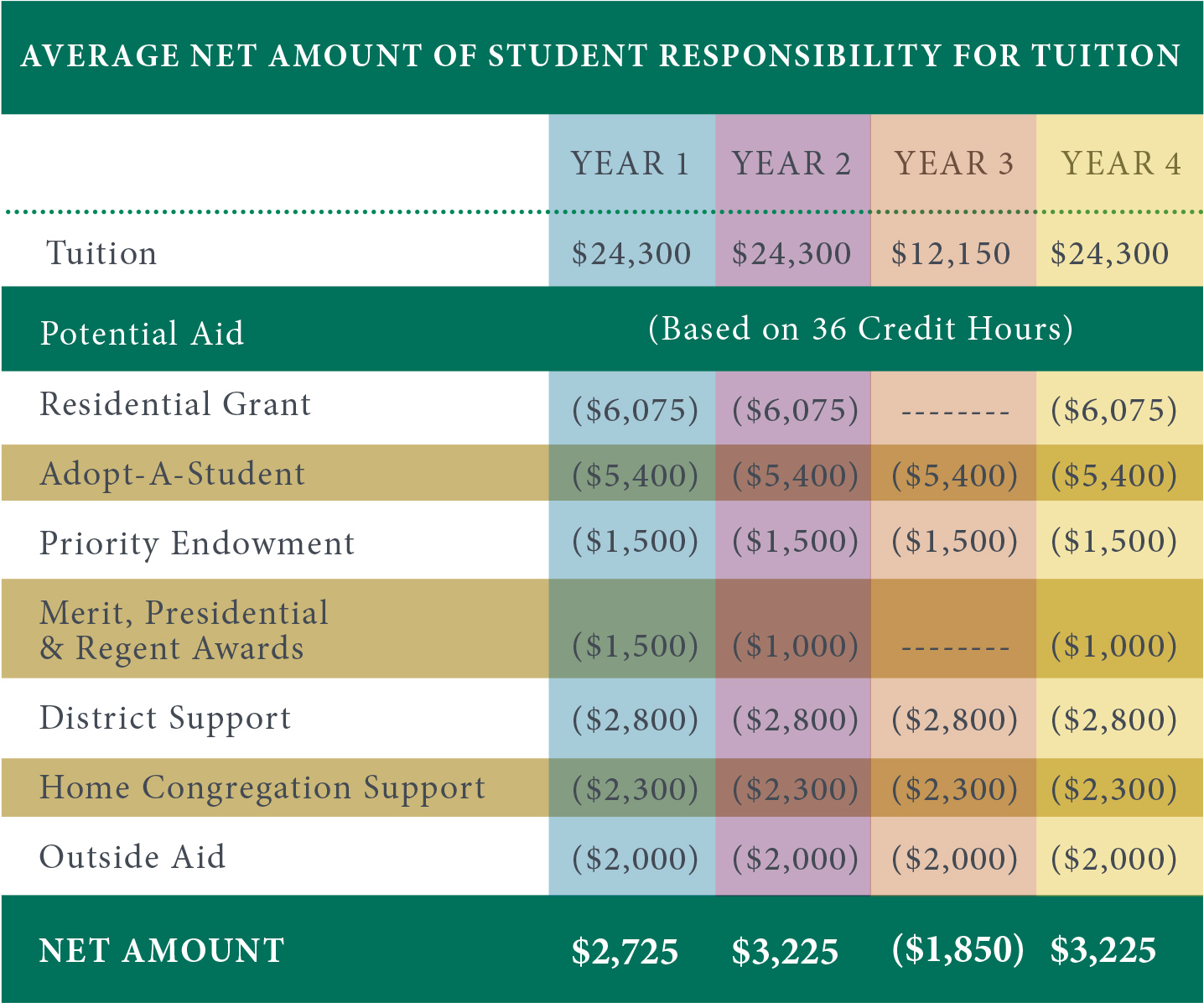
Congregational Experience
Pastoral and diaconal formation students receive hands-on training through the Seminary’s Resident Field Education (RFE) program, which allows them to experience the role and functions of a pastor and deaconess of a congregation.
First-year students spend a maximum of eight hours weekly, and second-year and post-vicarage students spend a maximum of 10 hours weekly at congregations in the St. Louis area. Students are placed under the supervision of pastors of the congregations to which they are assigned. In addition, students serve one quarter in an institutional setting and one quarter in a culture crossing context.
“The Resident Field Education program provides a supervised environment in which students learn to integrate faith, academics and practice in the unpredictable environment of the local congregation,” said Rev. Todd Jones, director of the RFE program.
In addition, pastoral and diaconal students, typically those in their third year of Seminary education, spend a yearlong vicarage or internship, in a parish setting.
“Vicarages and internships give students the opportunity to bring together classroom learning, past experiences in the church, modeling seen from others and personal preparation,” said Dr. Glenn Nielsen, the Seminary’s director of vicarage and deaconess internships. “They learn needed skills and also provide acts of ministry for people in the congregation or institution being served.”
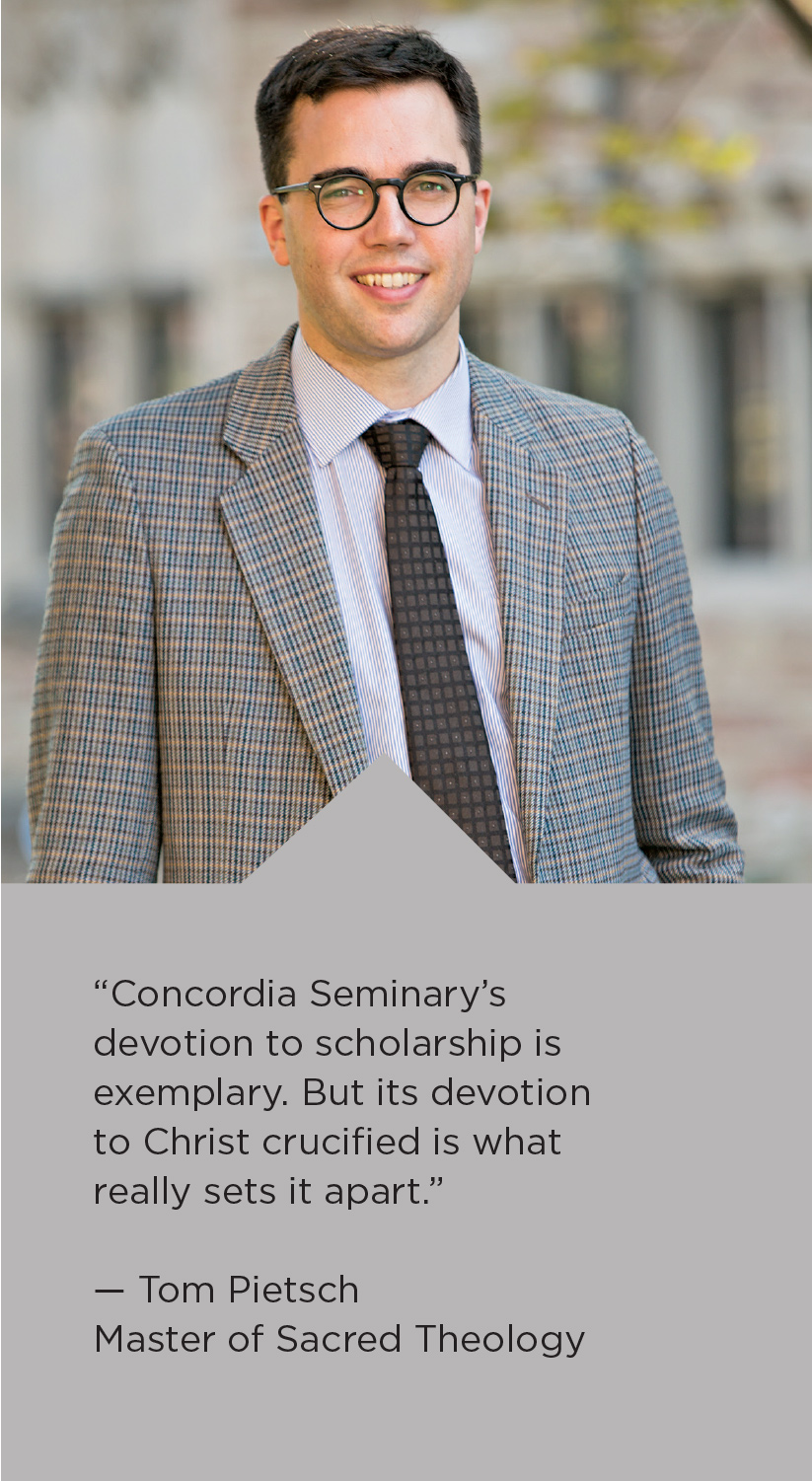
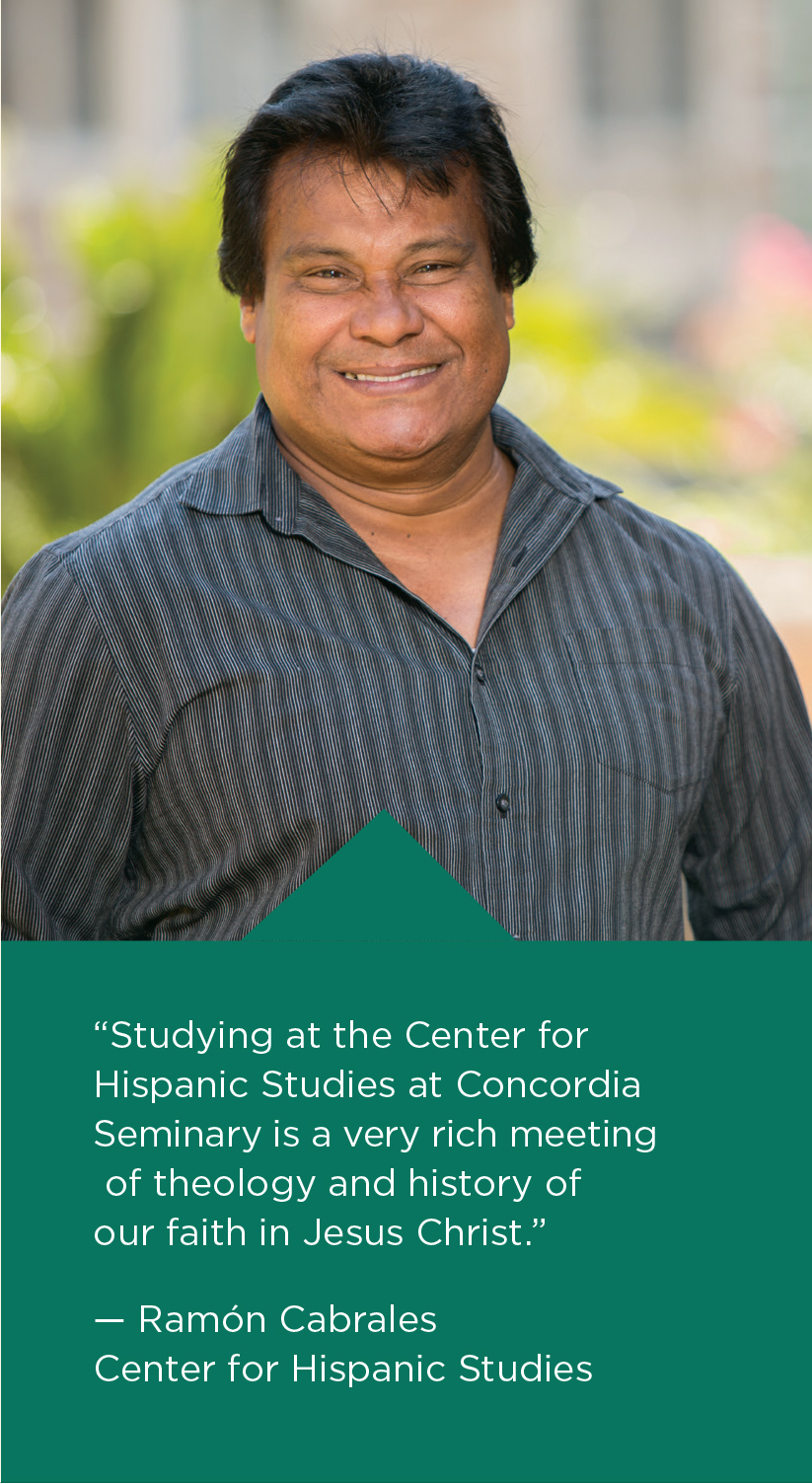
This article originally appeared in the Spring 2016 Concordia Seminary magazine.
Design by Michelle Meier, a graphic designer at Concordia Seminary, St. Louis.